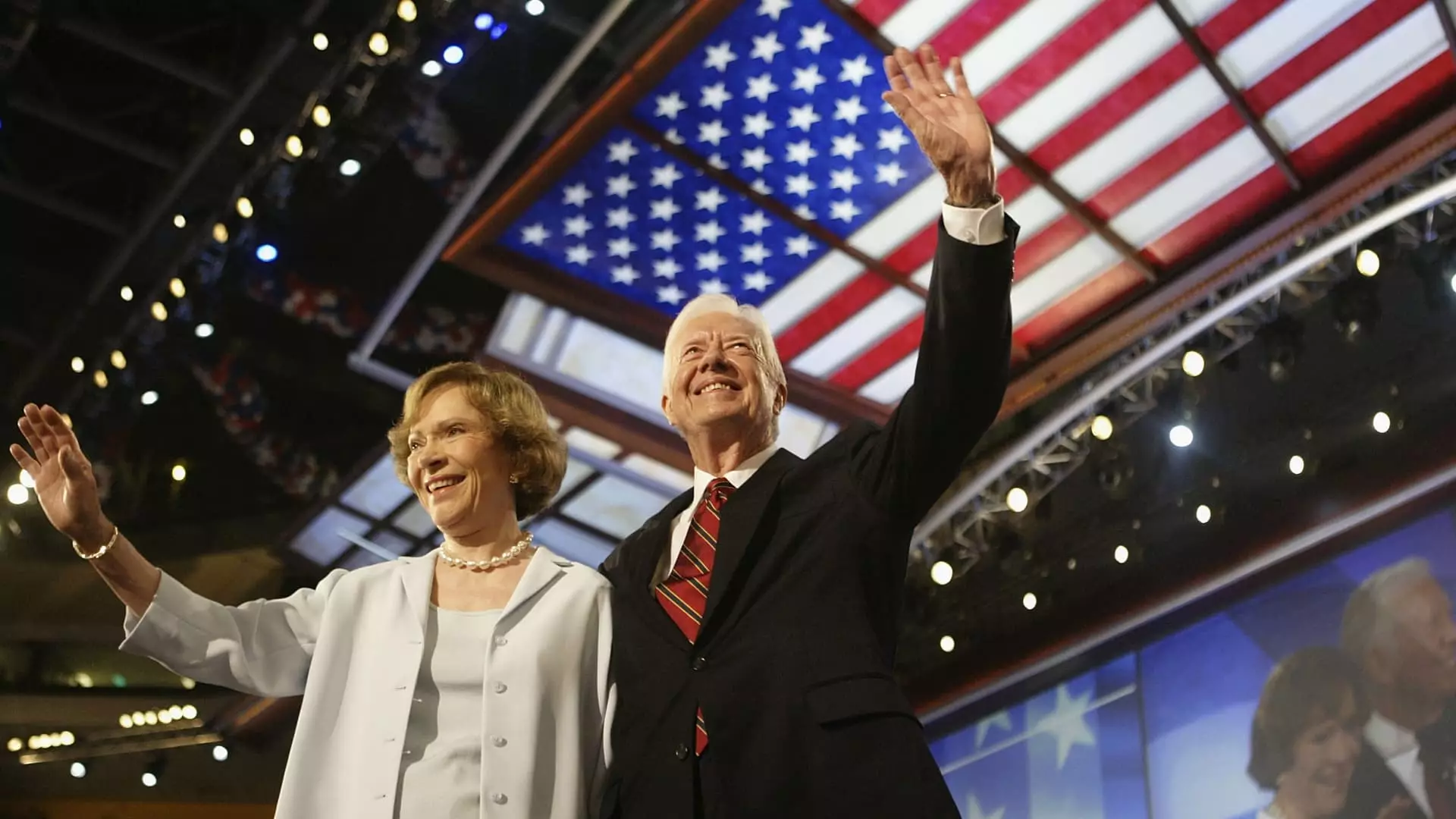In the wake of former President Jimmy Carter’s passing on a Sunday, an impressive number of political leaders across the United States expressed their condolences and reflections on his life and contributions. His death evoked specific sentiments and expressions of gratitude, emphasizing the profound impact he had across the political spectrum. From Senate Majority Leader Chuck Schumer’s assertions about Carter’s unwavering belief in the American people to the reverent acknowledgments from Senate Minority Leader Mitch McConnell, it is clear that Carter was viewed as a beacon of integrity and service.
Schumer highlighted how Carter’s leadership stature rested not on grandiose speeches but on tangible actions and a heartfelt commitment to public service. This perspective underscores a foundational philosophy inherent in Carter’s presidency and post-presidency endeavors: that authentic leadership stems from being attuned to the needs of others rather than seeking personal accolades. McConnell, drawing from agrarian metaphors related to Carter’s Georgia roots, painted a vivid picture of Carter as a dedicated cultivator—not only of crops but of humane values that enriched American society.
The profound respect for Carter transcended party lines, with former presidents and political leaders recalling their personal relationships with him. The joint statement from Bill and Hillary Clinton illustrated a deep sense of admiration, noting their pride in having supported him in his presidential campaign and working with him on humanitarian efforts after his tenure as president. The Clinton’s tribute speaks to Carter’s legacy not merely as a politician but as a compassionate human being who always aimed to uplift those around him.
Additionally, current members of Congress also remembered Carter for his unwavering commitment to humanitarian causes. House leaders on both sides of the aisle shared sentiments that highlighted his altruism, with statements echoing the notion of Carter as a “great humanitarian.” Such comments represent a rare moment of unity, demonstrating that regardless of political affiliations, the essence of Carter’s character resonated with all who valued service over self-interest.
Carter’s life was characterized by an undying commitment to social justice, exemplified by initiatives such as the Carter Center and his active involvement with Habitat for Humanity. His post-presidency years were marked by a tireless dedication to improving the lives of others, which many political figures underscored in their reflections. Notable was Senator Mike Lee’s emphasis on Carter’s post-White House contributions, which arguably solidified his legacy as a significant humanitarian figure in American history.
The Carter Center was established with a mission that resonates profoundly with these commitments. It aims to foster human rights and alleviate human suffering across the globe. As leaders, including both Democratic and Republican senators, highlighted Carter’s contributions to societal welfare and humanitarian efforts, it became evident that he transcended conventional political roles. He actively sought to provide support and empower marginalized communities, leaving a robust framework through which future leaders can view civic duty.
Carter’s personal faith played a significant role in his life, influencing both his political actions and humanitarian efforts. Leading Sunday school classes in his hometown of Plains, Georgia, up until recent years, he was steadfast in displaying the principles of humility and kindness. Many of his admirers, such as Senator Chuck Grassley, acknowledged how Carter’s devotion to his faith shaped him as a leader dedicated to serving others, thereby enhancing his moral authority. This spiritual commitment not only informed his governance while in office but also marked his post-presidency endeavors, showcasing a holistic approach anchored by faith.
The legacy of Jimmy Carter is thus woven into a rich tapestry of service, character, and faith. His life’s work transcended the boundaries of political achievement, establishing him as a paradigmatic figure in humanitarian efforts. The tributes shared by leaders across the political divide illuminate a collective respect for a man who sought to make a lasting impact beyond mere political milestones. In honoring Carter, society recognizes the essence of leadership defined by service, compassion, and commitment to promoting a better world for all. The profound loss is felt deeply, but the legacy of care and integrity he leaves behind is a guiding light for future generations.

